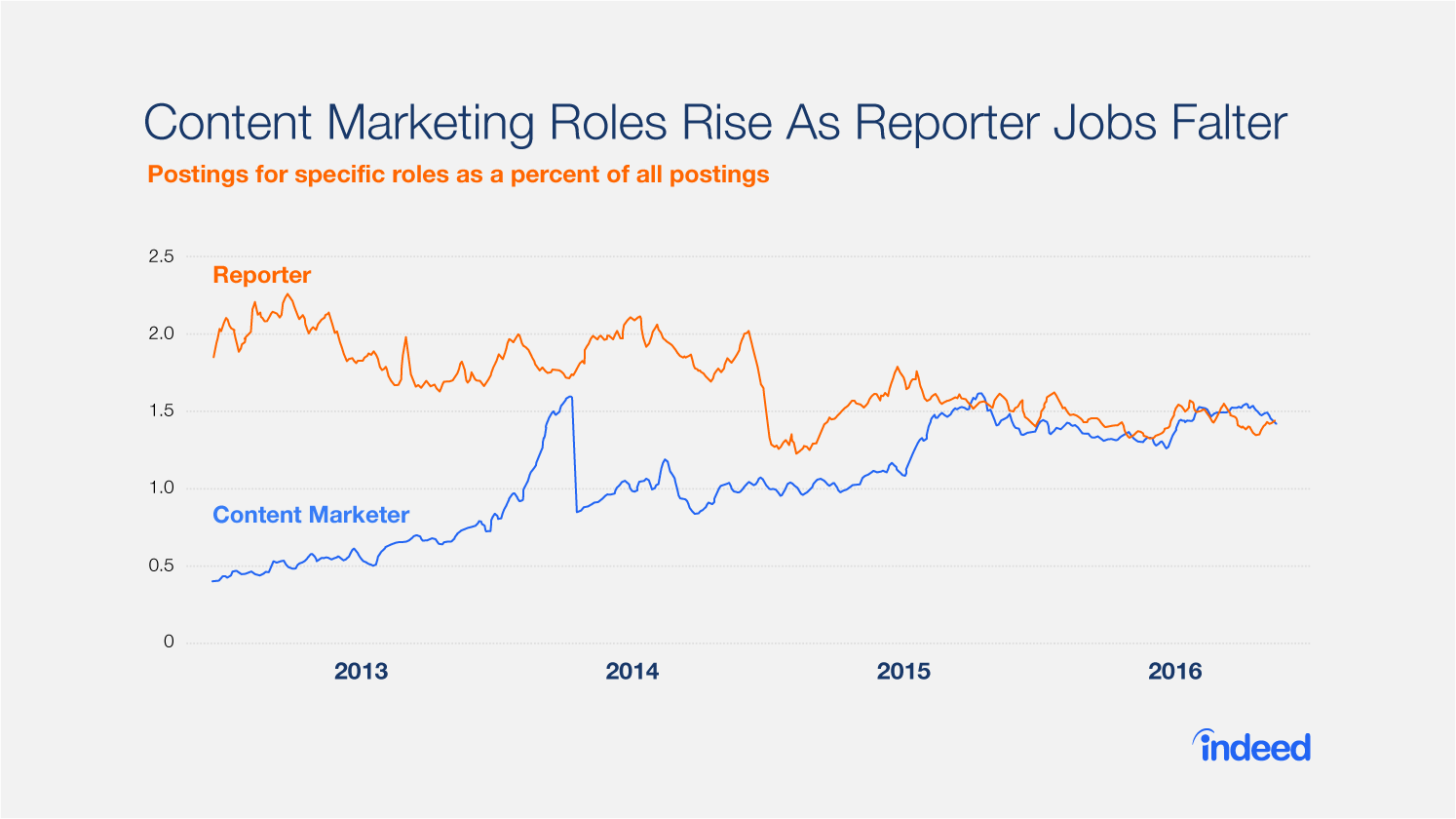The shift to an online world where information is available to everyone has revolutionized the news business. Today, anybody, anywhere with a smartphone can follow the headlines as they unfold in real time. But there’s a flipside, too: Most of this information is consumed for free, which makes funding a large-scale news entity very difficult.
As a result, the news about the news business is often discouraging, especially when it comes to jobs. It’s not uncommon to read about staff layoffs at even the most prestigious news organizations. While digital ad revenue rises every year, internet giants like Facebook and Google are the beneficiaries of this shift. Very little goes to news outlets. And with the increasing adoption of ruthlessly efficient article-writing robots, this disruption is likely to continue.
Confronted with all this change, just how confident are journalists and reporters in the future of their chosen profession? Do they still see a future in the news business or are they looking elsewhere for employment? Indeed took a look at the data behind headlines—here’s what we found.
Marketing, customer service jobs attract the most interest from journalism grads
First, we wanted to see what the 2016 graduating class of journalists is looking for in a job. Having invested time and money in learning the trade, how enthusiastic are they about finding work in a field where the jobs news is rarely encouraging?
Top 10 Occupations By Interest From Journalism Majors (Q1 2016)
[table id=50 /]
In fact, the top three searches for journalism majors are marketing managers, customer service reps and PR specialists, respectively.
The highest ranking job directly associated with a journalist’s traditional skill set is editor, which places fifth. However, it should be noted that this is a very broad category and can include roles in publishing, marketing and television. The equally broad category of writers and authors places sixth.
Strikingly, we don’t see as much job seeker interest for reporter jobs. This is not because journalism graduates are not searching for work as reporters, only that they are doing so in relatively small numbers: Reporter jobs place 12th on the list, outside the top 10.
This decline in interest makes sense when you consider that the class of 2016 is graduating with an average student debt of $37,173 and that the median salary for a reporter is $37,720 per year. Since starting salaries will in most cases be lower than the median, many journalism grads would be starting their careers at a severe financial disadvantage.
Marketing also #1 choice among working journalists
If the overwhelming majority of journalism graduates are not even attempting to enter the field for which they have trained, what’s on the minds of those already working in the profession?
Top 10 Occupations By Interest From Working Journalists (Q1 2016)
[table id=51 /]
In this group, marketing manager is also the occupation receiving the most interest. And considering that the role has a median salary of $124,850 a year according to the BLS, it doesn’t take Pulitzer Prize-level investigative skills to figure out its appeal to both veteran journalists and the most recent graduating class.
However, among working journalists, searches for reporter jobs rank far higher—coming in fourth. Of course, it is understandable that veterans with years invested in the field want to continue working in their chosen profession. In fact, working journalists are also more likely to search for work in related fields such as PR and general writing/editing, favoring those over the sales and customer service jobs pursued by recent graduates, which place lower on this list—if they appear at all.
This gap in interest between recent graduates and the working journalists points to a problematic demographic trend for the news industry. With so few members of the emerging generation of trained journalists interested in pursuing a career in the news, what will employers do when veteran talent starts to retire?
Content marketing jobs rising as reporter jobs falter
With so many journalists interested in finding alternative careers in marketing, we wanted to see if they were looking in a growth area.
Since “marketing manager” is an extremely broad category, we decided to look at the growth in postings on Indeed for one subset of marketing jobs with a very strong overlap in skills with journalism: content marketing. The chart below compares growth in postings for content marketing and reporter jobs from 2013 to today.

Overall, postings of jobs with “reporter” in the title have declined by 21.1% since 2012—while “content marketing” jobs have grown by an impressive 235.9% over the same period.
As a result, content marketing and reporter jobs have been steadily drawing closer and closer together, running more or less neck and neck for the past year. In fact, content marketing job postings have twice exceeded reporter jobs on Indeed—in April 2015 and again in March 2016.
So it seems possible that we may be on the verge of watching content marketing overtake reporter jobs altogether.
What does the future hold for journalism jobs?
Of course, there will always be demand for reporter and journalist jobs. And the industry may yet find a business model to make it easier to operate during the current period of turmoil.
For now, however, it is undeniable that the economics of the profession make it difficult for highly skilled, highly trained professionals to sustain a career. In the meantime, better-paid alternatives which rely upon the same skill set—such as content marketing—will continue to tempt people away from traditional journalist positions.







